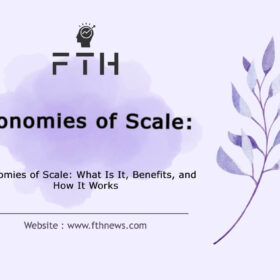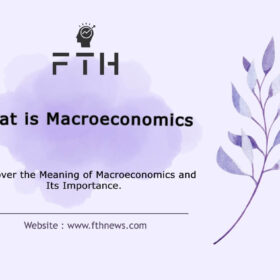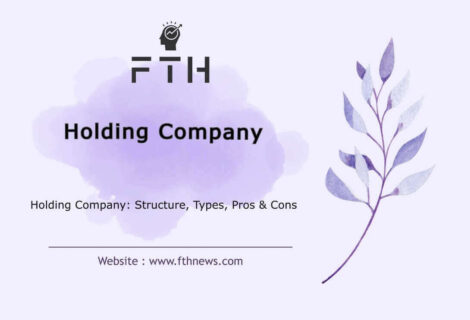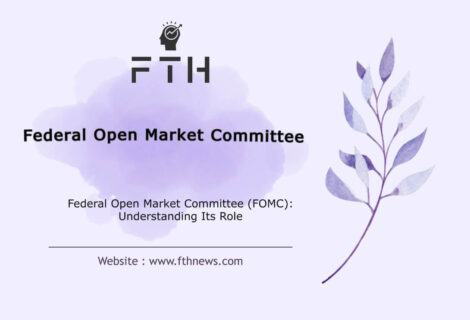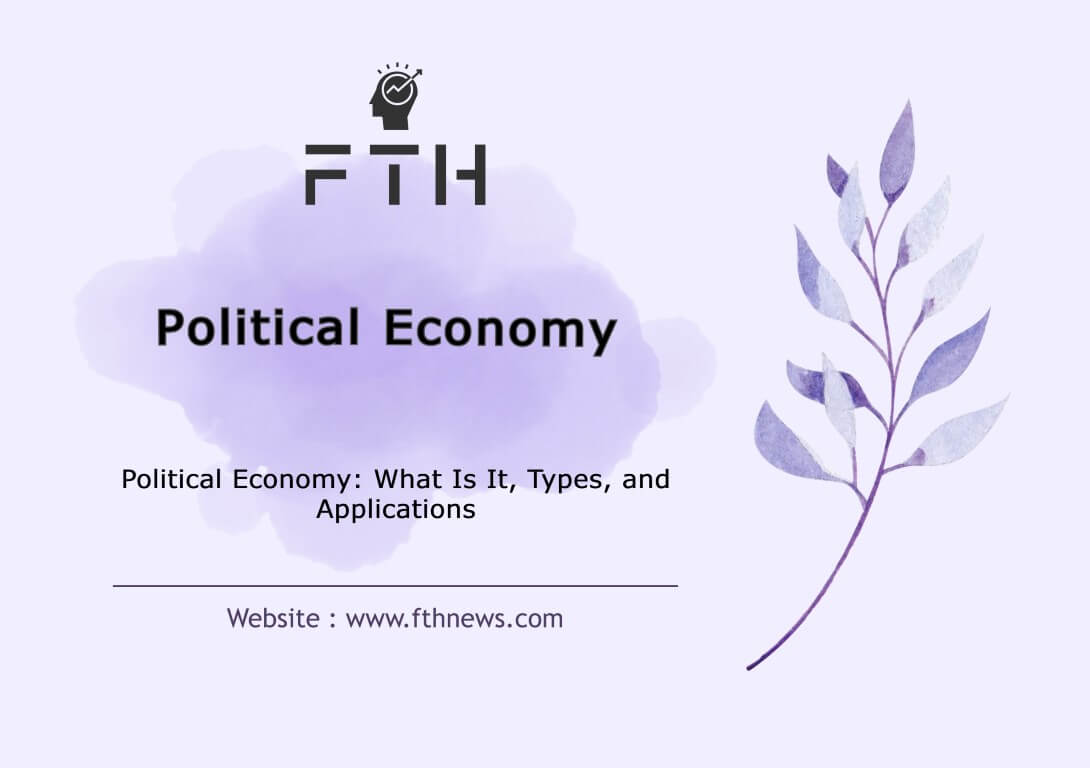
Political Economy: What Is It, Types, and Applications
As an investor, the depth of our understanding of the economy and its various facets greatly influences our ability to analyze and, subsequently, make well-informed decisions concerning our valuable capital. This understanding extends to the realm of political economy, shedding light on the direct impact of political decisions and interventions on the economy and financial markets. Every move governments make and every manipulation they employ in the market have direct consequences for the profitability or loss of our economic activities.
This issue assumes particular significance in third-world or developing countries, where governments often wield a more substantial influence compared to their counterparts in developed nations. In these regions, the government frequently plays a significant role in financial markets, besides the presence of giant state-owned entities.
Defining Political Economy
Political Economy is a branch of economics dedicated to the study of the intricate relationship between individuals, governments, markets, and politics. Many economists regard it as an interdisciplinary field, drawing from various disciplines to attain its desired outcomes.
A seasoned political economist seeks to comprehend how different political ideologies and decisions impact markets, economies, and individuals. However, their influence is limited to understanding these effects, as they lack the authority to alter these policies.
Historical Roots of Political Economy
In the not-so-distant past, when discussing economic matters, the term “political economy” was often employed. Historical references to this expression can be traced back to notable figures such as “Adam Smith” and “Jean Jacques Rousseau.” The separation of the “political” aspect from the economy occurred as economists introduced relative but acceptable economic statistics. However, it was soon realized that the term “political economy” accurately conveys the inextricable link between economics and politics.
The Aims of Political Economy
Today, when economists aim to apply the theories written in economic textbooks to the real-world economic chaos experienced by different nations, they don the lens of “political economy.” The primary objective of political economy is to not only apply economic theories to practical situations but also to analyze the outcomes of these applications and dissect the economic realities of the contemporary world.
perspective motivates them to carefully manage these resources and leverage them in negotiations with neighboring nations.
In this context, the population, whose role as the labor force of the land is predetermined, is expected to contribute a portion of their earnings to the government in the form of taxes or government fees. Such contributions are necessary for the management of the nation’s resources.
Regrettably, as the people typically lack the level of knowledge held by the government, the government feels compelled to remind them continuously that resource management requires financial support. The methods of these reminders are manifold.
Governments keen on resource management appreciate the tools provided by political economy, which offer diverse strategies to govern both the land and the economy.
The Role of Governments in Political Economy
When we discuss political economy, the spotlight inevitably falls on governments. The term “politics” is inseparable from the notion of government. Let’s examine how governments worldwide are intertwined with political economy.
Countries are, at their core, geographic territories with abundant natural resources—particularly evident in regions like the Middle East, where the earth conceals vast reserves. The governments of these lands often perceive themselves as the stewards, or even owners, of these territories. They tend to view their populations, except for the very wealthy and their own families, as a labor force, and the resources as their rightful possession. This perspective motivates them to carefully manage these resources and leverage them in negotiations with neighboring nations.
In this context, the population, whose role as the labor force of the land is predetermined, is expected to contribute a portion of their earnings to the government in the form of taxes or government fees. Such contributions are necessary for the management of the nation’s resources.
Regrettably, as the people typically lack the level of knowledge held by the government, the government feels compelled to remind them continuously that resource management requires financial support. The methods of these reminders are manifold.
Governments keen on resource management appreciate the tools provided by political economy, which offer diverse strategies to govern both the land and the economy.
Does Political Economy Lead to Economic Prosperity?
As previously discussed, a significant portion of political economy revolves around governments’ interests in resource management and population control. Consequently, it’s the government that primarily benefits from this form of economy. Governments, as a collective entity, tend to prioritize their interests over those of the nation, as demonstrated by their discussions, which often neglect the welfare of their citizens.
Hence, when wealth begins to circulate among the people, governments often respond with dismay, as if someone has snatched their cherished possession from their grasp. The sky seems to be falling! If a particular region experiences growth and development, governments swiftly converge, demanding their share of the success. After all, they argue, it was their resource management that enabled such prosperity.
In such cases, due to the government’s insistence, people find themselves entangled in a bureaucratic web, causing fluctuations in their economic fortunes. This often results in their portion of the prosperity shrinking to a mere fraction of their earnings.
However, it’s essential to understand that governments consider this situation the fault of the people. In their eyes, political economy and resource management are distinct from people and their economic well-being. Therefore, it’s important not to impede the world’s governments when they assert their claims.
The Power Game in Political Economy
Political economy is inherently tied to governments and their decisions regarding economic mechanisms and territorial resources. Governments cannot ignore the economy because it equates to “money” in their lexicon. Money, for governments, serves as a means to influence people, other governments, and even their adversaries. In this way, they gain the necessary leverage to manage their resources and exert control over their populace.
In simpler terms, political economy is a tool that governments use to play their political games and maintain their grip on power. Of course, one can view this narrative through alternative lenses.
Political Economy: Bridging Government and Market
Political economy is the bridge term that governments employ to establish a communication channel with the markets. In this narrative, the economy symbolizes the market, and politics represents the government. Officially, this term symbolizes the connection between government and market, offering politics a legitimate and appealing façade for market interference.
Interestingly, when governments strengthen their presence in the market, it often limits the scope for a free market, distancing people from the opportunities it offers. It’s ironic to think that governments, by venturing into the market as economic entities, appear to be working alongside the people. In reality, governments in the market search for promising economic enterprises and seek a share in their success.
If they discern the possibility of acquiring a larger share of the circulating wealth through calculated market manipulation, they may not hesitate to do so. Examples of this behavior can be observed in the largest state-owned companies, government-owned industries, and governments’ substantial involvement in the stock market.
Types of Political Economy
Political economy can be broadly categorized into three main branches, each offering a unique blend of economics and politics. Let’s explore these branches in more detail:
Socialism:
“Socialism” represents a school of thought or attitude that results from the fusion of economics, politics, and sociocultural concerns. Notably, various political parties, groups, and sects worldwide wave the banner of socialism, but their interpretations can vary significantly. In essence, socialism is a complex and multifaceted form of political economy, often focused on the ideal of “equality.”
Socialism aims to ensure that all members of society, regardless of their current wealth, have an equitable share of the “common good.” In the context of Iran, socialism resonates with the idea of “justice” due to the country’s political experiences.
Despite the critiques and the recognition of potential drawbacks, socialism still holds appeal, especially among those who bear the weight of oppressive governments. As a result, even in the 21st century, various political factions champion the cause of socialism.
Capitalism:
In stark contrast to socialism, “Capitalism” contends that the means of economic production and development should not be evenly distributed among all individuals. Instead, they should be concentrated in the hands of a select group of capitalists. This concentration, proponents argue, provides the necessary incentive for engaging in profitable economic activities, thereby advancing the nation’s economic cycle.
Capitalism promotes competitive markets, where different investors seek profit, ultimately driving the engine of capitalism. Despite negative portrayals, it’s arguable that many of humanity’s most significant achievements and advancements have occurred under the banner of capitalism. These achievements encompass:
A free-market economy
Competitive prices, devoid of government mandates
A platform for growth and development accessible to all
Advancements in global health and the eradication of infectious diseases
Opportunities for education and the expansion of knowledge
Recognition of individual property rights, both material and intellectual
Growth and development of various industries aimed at improving living conditions and creating practical tools
Enhanced societal security, driven by economic improvement
The biggest challenge to the capitalist system occurs when governments themselves enter the market as capitalists.
Communism:
The third theory in political economy is “communism,” pioneered by “Karl Marx” and further developed by his collaborator, “Friedrich Engels.” While the roots of communism can be traced back to figures like Plato, the most influential movement emerged with Marx and Engels.
Marx’s journey through capitalism led him to the conclusion that the rich were amassing wealth at an unprecedented rate, resulting in a significant wealth disparity within society. Although the capitalist system had lifted societies out of poverty and famine, Marx believed that capitalists were exploiting workers. In response, Marx sought to create a labor movement against capitalism.
Workers, viewing Marx as their advocate, embraced his ideas. This movement generated significant criticism of capitalism and investment worldwide.
The Political Economy of Communism: Goals and Consequences
Karl Marx’s vision of communism centered on the idea that the government should seize control of all resources and means of production from capitalists and investors and undertake their management. While this concept may seem ideal in theory, in practice, it created conditions conducive to the demise of free and competitive economies in various parts of the world. This transformation often resulted in poverty, oppression, protests, and, in extreme cases, even national famines.
One glaring example of communism’s failures is seen in the history of China, where this ideology led to the deaths of over 40 million people. Remarkably, a significant portion of these casualties comprised farmers who had their agricultural land seized by the government as part of the communist agenda.
Political Economy: Navigating the Fine Line
Economics, despite its occasional shortcomings or biases, primarily seeks to understand, improve, and analyze the root causes of economic events. Political economy shares this overarching objective but with a crucial difference: it often views events from a governmental perspective. Even when we attempt to view it from a different angle, the influence of government policies and interventions in the economy remains palpable.
In essence, political economy operates as a tightrope walk between understanding the dynamics of government-driven economics and comprehending the impact of these policies on the broader economic landscape. It’s a discipline that investors should approach seriously, as it enables them to grasp the profound influence of government policies and new regulations designed to expand that influence.
Political Economy in Academic Institutions
In recent years, the term “political economy” has evolved into an established academic discipline. Many prestigious institutions now offer courses in political economy as part of their political science, economics, or sociology departments.
Political economists engage in research to analyze how public policies influence human behavior, productivity, and trade. Their studies aim to decipher the intricate web of wealth and power distribution among diverse individuals and groups. To achieve this, they delve into specific areas such as law, administrative politics, legislative behavior, the nexus of government and business, and regulatory frameworks. Political economy is approached from three key perspectives:
1. Interdisciplinary Studies: The interdisciplinary approach amalgamates sociology, economics, and political science to assess the mutual influence of government institutions, economic systems, and the political environment on one another.
2. The New Political Economy: This perspective delves into a set of actions and beliefs, seeking to articulate underlying assumptions that fuel debates about social preferences. It’s a blend of classical political economic principles and contemporary analytical developments in economics and politics.
3. International Political Economy (Global Political Economy): This approach explores the connections between economics and international relations. Drawing insights from a diverse range of academic fields, including political science, economics, sociology, cultural studies, and history, international political economy scrutinizes the global economic interactions involving political entities like governments, individual actors, and institutions.
Modern Applications of Political Economy:
Contemporary applications of political economy delve into the works of modern philosophers and economists, such as Karl Marx.
Karl Marx, in particular, expressed disillusionment with the capitalist system as a whole. He contended that within social classes, individuals suffered as a result of a select few holding a disproportionate share of wealth. Communist theories, according to Marx, sought to eliminate these disparities, fostering an environment of equal living conditions. In a communist regime, resources are owned and administered by the government.
It’s important to note that socialism and communism, while sharing some common objectives, have fundamental differences. Both emphasize bridging the wealth gap and distributing resources more equitably among citizens. However, in a communist society, resources are owned and controlled by the government, while in a socialist society, individuals maintain stewardship over property. People under socialism still retain the ability to purchase goods and services, whereas individuals in a communist system rely on the government to meet their basic needs.
FAQ
In simple terms, political economy delves into how politics and economics are interconnected, shaping our society by examining how government decisions and economic factors influence each other.



